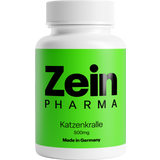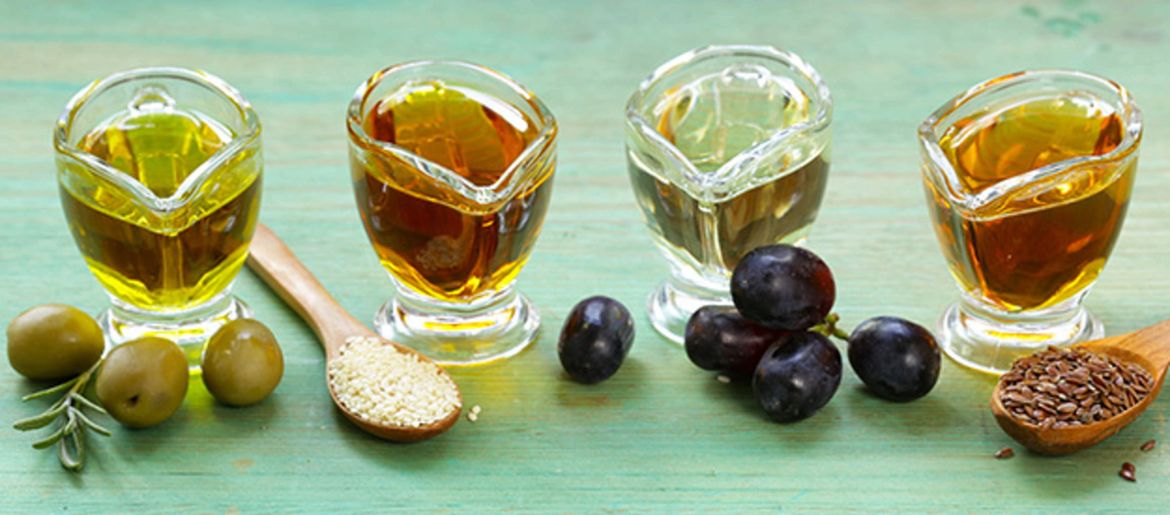Guide to Cooking Oils: Which Oil is Suitable for What?
Hot or cold cooking - which oil can be used for what?
Cooking oils have very different properties and flavours depending on the type, quality and production process. On the one hand, this means that not every oil goes well with every dish, and on the other hand, you have to be careful which oil you use for preparing hot dishes, i.e. for baking, frying and the like.
Cold-pressed and refined oils - what is the difference?
Cold-pressed means that kernels, fruits or seeds are pressed out purely mechanically. These oils are also called virgin, i.e. natural. This production method preserves the smell and taste as well as many vitamins and other ingredients. Cold-pressed oils have an intense aroma and are perfect for salads. For native oils, the quality requirements are very high because only the best plants produce the best flavour. The disadvantage is that these oils are not really heat-stable. At very high temperatures, flavour and ingredients are lost. Some oils should not be heated at all, such as linseed oil. This can produce toxic substances.
Refined oils are very heat-resistant because the seeds and fruits are not only pressed but also heated to high temperatures. Afterwards, the oil has to be cleaned, i.e. refined. This makes refined oils practically tasteless and odourless and perfect for preparing all hot dishes where no flavour influence of the oil is desired, e.g. deep frying. Refined oils are heat stable up to about 230 degrees. For refined oils, the quality requirements for the raw materials are lower because the oil has almost no flavour of its own after production anyway.
Fatty acids and smoke point determine use
The fatty acids contained in the oil and the smoke point determine which oil is suitable for preparing cold dishes and which is also suitable for baking, deep-frying and frying.
The higher the content of unsaturated fatty acids, the less heat an oil can tolerate. The lower the smoke point, the more likely the oil is to smoke during frying and deep-frying. Cold-pressed edible oils have a lower smoke point than refined oils of the same plant species. The smoke point of rapeseed oil, for example, is between 160 and 180 °C when cold-pressed and over 210 °C when refined.
Are cold-pressed edible oils healthier than refined oils?
Cold-pressed oils contain many vitamins and other ingredients, but the composition of fatty acids, which is mainly responsible for the health value of oils, is practically the same in refined and cold-pressed oils of one plant variety.
What is the shelf life of edible oils?
Once an oil has been opened, it should above all be stored in a cool, dark and airtight place, because light, heat and oxygen accelerate the deterioration of the oil. It is best to trust your own senses. If the oil smells or tastes rancid, you should discard it. Rancid oil is not immediately harmful to health, but it completely spoils the taste of the food.
In general, refined oils last about six to eight months after opening, cold-pressed oils about two.
How to dispose of old cooking oil properly?
Please never pour old or leftover cooking oil down the drain. Because fat is not soluble in water, it creates fat deposits that clog sewer pipes and cause millions of dollars in damage. It is better to dispose of the oil in the residual waste (if the oil is liquid, e.g. in the original packaging or in an old jam jar with a screw cap). Larger quantities of used oil can be disposed of at recycling centres.
So lets recap:
In general, cold-pressed oils should be used for cold cooking, refined oils for hot cooking. However, there are also some cold-pressed oils that are suitable for frying and deep-frying to a certain extent.
Store cooking oils in a dark, airtight and cool place.
When you dispose of cooking oil, do so in a container with the residual waste - never pour it down the drain!
Latest reviews
-
 5.0 (2)
5.0 (2)Novalac Allernova AR, 400 g
Bestseller- 0 - 36 months
- With many vitamins
- Lactose-free formulation
£19.20 (£48.00 / kg)Delivery by April 29
-
 4.5 (11)
4.5 (11)ZeinPharma Cat's Claw Capsules 500 mg, 90 capsules
- From the bark of the cat's claw
- Highly active ingredients
- From South America
£18.40 (£353.85 / kg)Delivery by April 29
-
 5.0 (1)
5.0 (1)ENZBORN Pretty Feet Cream, 75 ml
-5%- Cream-gel consistency
- With urea, hawthorn, jojoba oil & allantoin
- Absorbs quickly & does not stick
£5.29 £5.55 (£70.53 / l)Delivery by April 29
-
 5.0 (4)
5.0 (4)ENZBORN Icy Devil's Salve, 200 ml
- Moisturizes
- Cooling & refreshing
- Can be used with insect bites
£7.70 (£38.50 / l)Delivery by April 29
Magazine Articles:
Discover VitalAbo :
-
Great Britain: Free standard delivery from £49.90
-
Free
returns -
We operate in a
climate-conscious manner. More than 7.800 products

